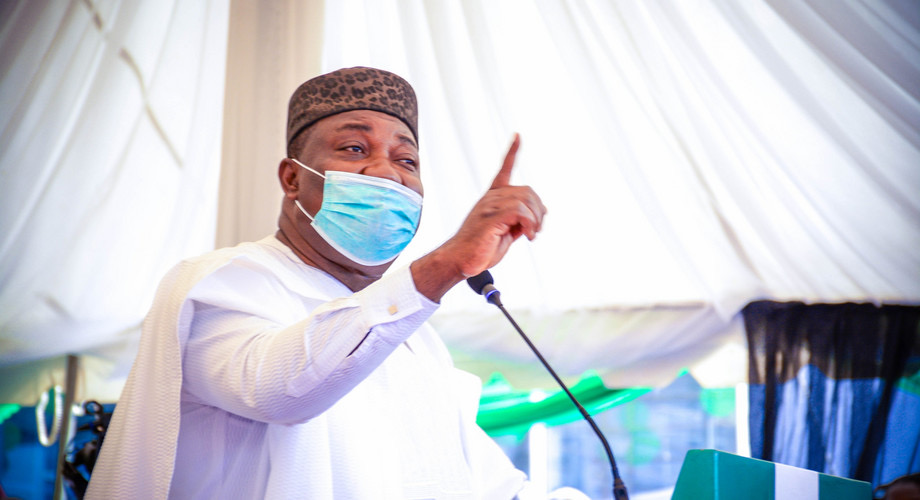
By Chinenye Ugwu
Recently, I did articles to interrogate the existence or nonexistence of any governorship zoning or rotation arrangement in Enugu State since 1999. The first was titled ‘Was there Ever a Zoning Arrangement in the Coal City State?’, while the title of the second one was ‘Enugu 2023: The Claims and Counter Claims over Zoning’.
I argued that there was no such succession order and went ahead to analyze the governorship tussles in Enugu State since 1999 to support my position. Every section of the state is deserving of the governorship position but not on the basis of ‘itis our turn based on the zoning arrangement by our founding fathers and elders.”
Such succession order as adduced by the ‘zoning apologists’ is nonexistent as would be shown below.
During the buildup to the return of democracy in Nigeria in 1999, Chief Jim Nwobodo (a founding member of the PDP and former governor of old Anambra State) and Dr. Okwezilieze Nwodo (the first National Secretary of the PDP and former governor of old Enugu State) were both elders and super political stakeholders by any standard.
However, Nwodo supported Nduka Agu, an indigene of Udi in Enugu West, while Nwobodo supported Chimaroke Nnamani, an indigene of Agbani in Enugu East for the Peoples Democratic Party (PDP) governorship ticket. Nwobodo triumphed, leveraging on his relationship with the then PDP National Chairman, Chief Solomon Lar.. This set a showdown between Chimaroke Nnamani (Enugu East) and APP’s Gbazuagu Nweke Gbazuagu (Enugu West) in the main election.
In 2003, Fidel Ayogu and Peter Okonkwo (Enugu North/Nsukka zone) and Anayo Onwuegbu (Enugu West) challenged Chimaroke Nnamani’s re-election at various levels.
Then in 2007, there was no prior agreement that power would shift to Enugu West after Enugu East. The emergence of Sullivan Chime was not a product of any pre-agreed zoning arrangement but Chimaroke’s discretion for personal political reasons/convenience.
To buttress this fact, in spite of Chime’s choice as the successor to the then governor, Chimaroke’s deputy, Okechukwu Itanyi and Osita Ogbu (both from Enugu North), Anayo Onwuegbu (Enugu West), and Dr. John Nwokeabia all ran against him for PDP’s governorship ticket. In the main election, Labour Party’s Okey Ezea (Enugu North) was Chime’s major contender, coming second ahead of Fidel Ayogu (Enugu North) as well as Rev. Oscar Egwuonwu of DPP, Chief Dubem Onyia of AC, and Ugo Agballa of APGA (all Enugu West).
In 2011, Chime battled Ezea, Dan Shere and Robert Eze (all from Enugu North).
Meanwhile, equity favoured Enugu North zone in 2015 since it was the only zone yet to produce a governor.
Furthermore, a governorship zoning agreement presupposes that people met at a known venue and time to reach a written or gentleman agreement. Can anyone name those founding fathers or elders that met to define a succession order among the three zones as well as when and where they met?
As far as Enugu governorship seat is concerned, everybody zone has always tried to win it in each election year, but God always gives power to whomever He pleases. In fact, the 2003 governorship contest between Fidel Ayogu and Chimaroke was particularly bloody. Have we forgotten so soon?
In 2007, Nsukka zone earnestly wanted the governorship seat and lobbied Chimaroke and other leaders of the state for it. For example, the meeting of Enugu State Development Association (ESDA) at the palace of their President-General, HRH Igwe Charles Abangwu, Ezeigwe of Eha-Alumona, in September 2006 in the build up to the 2007 election centred on Chimaroke’s successor. It became an argument between Ndị Nsukka and Ndị Agbaja (Udi/Ezeagu part of Enugu West). Whereas Igwe Abangwu and other Nsukka leaders made passionate pleas for Nsukka, Agbaja/Ezeagu leaders argued otherwise.
Then Chief Enechi Onyia (SAN), stood up. Looking Igwe Abangwu in the eyes, he asked: “Have you forgotten how Chief Tony Mogboh and I came to meet you and other Nsukka leaders on behalf of Ndị Agbaja in 1992? We proposed to you that rather than ‘Ndienii’ (these people) to be governor, Okwesilieze should take the governorship with our support”.
By “Ndienii”, Onyia was referring to Greater Awgu (Aninri, Awgu, and Oji River) part of Enugu West senatorial zone where the Social Democratic Party’s candidate, Gbazuagu, hails from. Surprisingly, Igwe Abangwu and other Nsukka leaders present did not counter Enechi Onyia. That incident is common knowledge in Enugu political circles and many people present at the meeting are still alive.
In other words, the governorship seat was ceded to Okwesilieze Nwodo in the old Enugu State way back in 1992 not because there was a zoning tradition or that he was into politics or most qualified, but simply because “Ndieni” (Gbazuagu and his Greater Awgu people) must never smell the Lion Building. To underscore that, Icha Ituma (former SSG), an indigene of Ohaukwu, Abakaliki zone (now in Ebonyi State) was picked as Nwodo’s running mate.
I am neither opposed to rotation/zoning per se nor equity. After all , at our level of development, equity and common sense demand that if a governor finishes from a particular zone, the successor should come from another zone. Equity also demands that if any zone has not occupied the ‘Lion Building’, such a zone should be given the opportunity. But good enough, in our own case, the governorship has gone round and no zone can reasonably plead exclusion.
Therefore, the facts on ground do not support Enugu East’s false sense of sole entitlement to the Lion Building come 2023. The good and most significant thing is that the coveted seat has gone round the three zones, but certainly not based on any pre-agreed zoning formula.
Consequently, Enugu people are at liberty to route for the best hands – East, West, or North to move the state forward.
Ugwu lives in Enugu_
